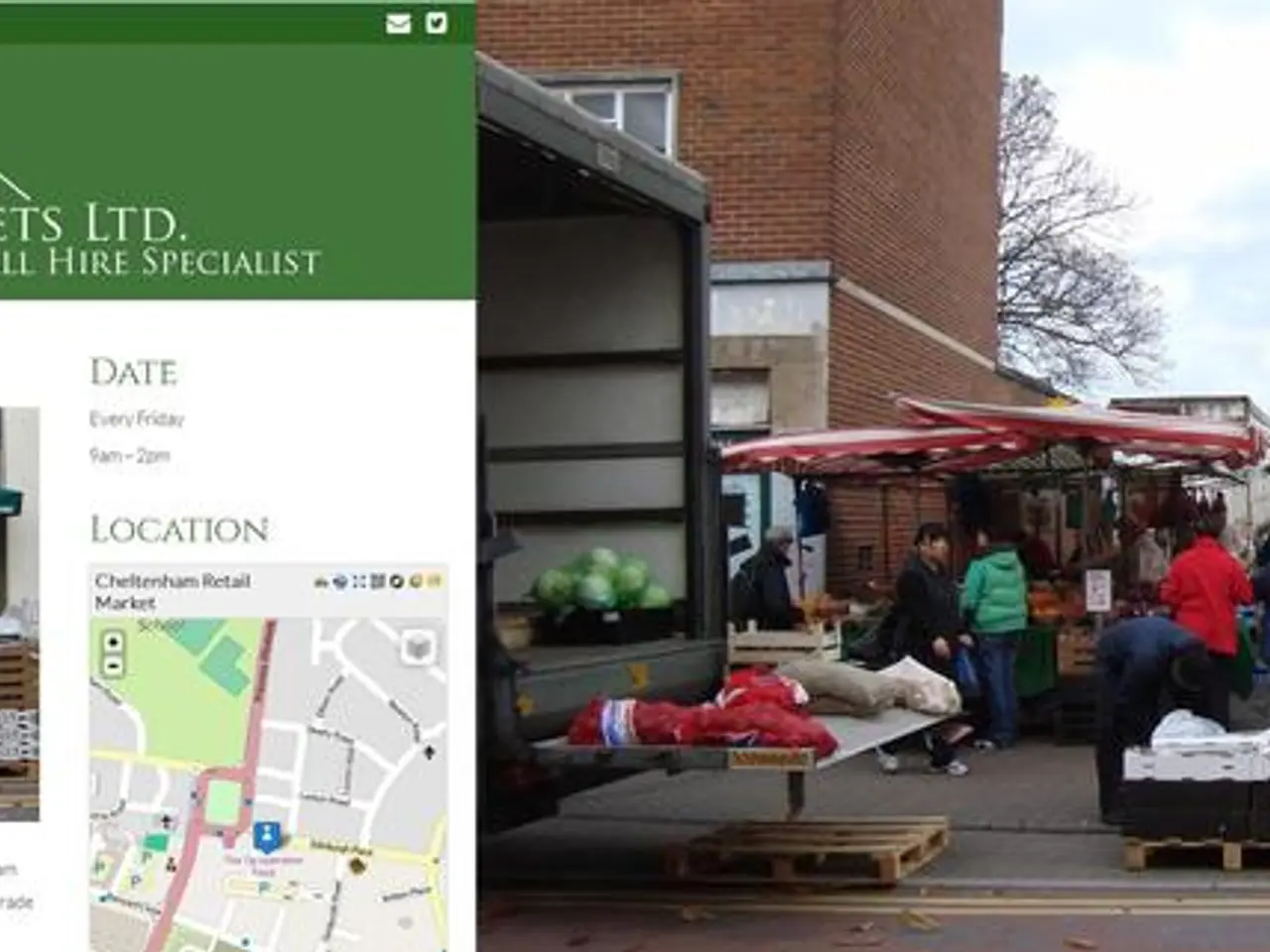Hanoi aims to eradicate unauthorized, informal traditional marketplaces within the twelve months span
Hanoi, the capital city of Vietnam, has embarked on a comprehensive plan to eliminate unplanned wet markets, makeshift traditional markets, informal street markets, and small-scale unregulated slaughterhouses by the end of 2025. This ambitious initiative, spearheaded by the municipal Department of Industry and Trade, aims to modernise and formalise the city's market system.
Key aspects of the plan include the closure of more than 700 slaughtering sites in residential areas by September 2025. Detailed clearance schedules and inventories will be compiled by ward and commune administrations. The city also plans to upgrade and expand formal market infrastructure, mobilise social resources and support mechanisms to assist vendors in transitioning, and enforce regulations and penalties for violations. Public campaigns will be launched to shift consumer habits away from informal markets.
However, the plan faces several challenges. The deep-rooted nature of unplanned and informal markets as familiar grocery shopping venues for generations may lead to public resistance. Coordination complexity among multiple municipal and local authorities to implement and enforce removal is another hurdle. Maintaining order and preventing the re-emergence of informal markets after clearance, ensuring adequate formal market capacity and accessibility, changing consumer behaviours, and holding local leaders accountable are other significant challenges.
In Duong Noi Ward, authorities have conducted frequent clearance operations, but vendors often return shortly after enforcement actions. Officials acknowledge the importance of considering the livelihoods of small traders while addressing road clearance and pedestrian safety. Informal markets are deeply ingrained in the daily life of many Hanoians, particularly in densely populated areas which serve as hotspots.
The Ha Noi Department of Industry and Trade plans to integrate market clearance into broader urban management efforts, linking it with city-wide steering committees to ensure coordination and prevent recurrences. Deputy Chairman of the Ha Noi People's Committee Nguyen Manh Queun has reaffirmed the city's determination to remove informal markets by 2025.
Ward and commune authorities will oversee slaughtering activities, penalise illegal operations, and promote the relocation of businesses into centralised facilities. Architect Daо Ngọc Nghiêm recommends adopting inclusive and well-funded policies to build and upgrade markets that serve all income levels, particularly middle- and low-income residents, thereby removing the need for informal street markets altogether.
Examples of hotspot areas include Mai Dịch Street (Nghia Do Ward), Nhân Hòa Street (Thanh Xuân Ward), the Thăng Long Boulevard service road, and Chính Kinh Market (Khương Thượng Ward).
In summary, Hanoi's approach is a comprehensive, government-coordinated effort focused on permanent removal by 2025 with strong regulatory, infrastructural, and social strategies. The city faces significant challenges involving social habits, enforcement, and market restructuring.
- Recognizing the challenges ahead, the Ha Noi Department of Industry and Trade has decided to integrate market clearance into broader urban management efforts, linking it with city-wide steering committees to ensure coordination and prevent recurrences.
- The ambitious plan to eliminate unplanned wet markets and informal street markets in Hanoi by 2025 extends to the policy-and-legislation arena, as ward and commune authorities will oversee slaughtering activities, penalize illegal operations, and promote the relocation of businesses into centralized facilities.
- In an effort to modernise and formalise the city's market system, the municipal Department of Industry and Trade plans to mobilize social resources and support mechanisms to assist vendors in transitioning, as well as upgrade and expand formal market infrastructure to accommodate all income levels.
- Leveraging technological advancements, the city could utilize AI and data-driven approaches to better understand and analyze consumer preferences and market trends, which could help shape more effective marketing, trade, and business strategies to further the objectives of this comprehensive plan.
- As political leaders, officials must maintain an open dialogue with the public to address concerns regarding this plan, ensuring that the general-news media coverage of the initiative is transparent and fact-based. It is crucial for leaders like Deputy Chairman of the Ha Noi People's Committee Nguyen Manh Queun to reaffirm their commitment to removing informal markets while considering the livelihoods and welfare of small traders in the face of changing market structures.






